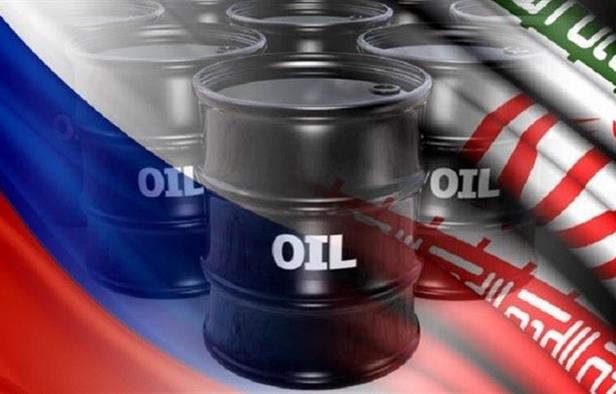The Return of the State
Ali Ibrahim/Asharq Al Awsat/September 02/15
From Egypt to Lebanon and Iraq, we are seeing a resurgence in street mobilization. Each of the protest movements in these countries are calling for the state to once again fulfill its proper role, after people have suffered as a result of politicians’ attempts to turn these countries into “nation slums” ruled by militias who have created new forms of violence, terror, murder, and intimidation. In Iraq we are seeing anti-corruption protests on an almost weekly basis.
The demonstrators are also calling for political reforms and better public services in Baghdad, and the protests coincide with the dire security situation in the Anbar province and Iraq’s second city Mosul, both of which have been overrun by the Islamic State of Iraq and Syria (ISIS). Meanwhile in Lebanon something similar is happening with the #YouStink protest movement—whose name refers to the garbage crisis that has blighted the capital Beirut, with piles of trash accumulating in the city for months without being removed. In Egypt, where the state has only just caught its breath after attempts to abduct it during the period of Muslim Brotherhood rule, the government has characterized the accumulating garbage problem as a “matter of national security.” I believe they are actually correct in this assessment. This phenomenon of the deterioration of the state and its failure to fulfill its role in a number of Arab countries is due to a variety of factors.
It has had an effect on large, highly populated cities such as Cairo, Beirut and Baghdad, which have lost the beauty they boasted only two decades ago. Ugliness is now sadly the norm in these cities: piles of garbage and other images of decay and neglect. It is almost as if the task of cleaning the streets has become so difficult that it can only be accomplished by acquiring some unattainable technological marvel. These images are clear to see in many Arab cities; all you need to do is take a stroll through one of them and you will get a sense of their governments’ failure of management: traffic chaos, garbage, lack of cleanliness, failing electricity and water supplies—all of which are also related to other major economic problems, chief among them youth unemployment. Again, many factors are responsible for the deterioration in public services in many of these countries over the last decades, from bloated and inefficient bureaucracies to widespread, endemic corruption. We have reached the stage where the simple process of collecting garbage and disposing of it has become some kind of logistical nightmare for the state.
But there is another factor responsible—and here, society as a whole, and not just the state, is to blame: the proliferation of militias. In some of these countries people and governments have allowed militias not only to grow, but also to begin rivalling the state itself by carrying out “parallel” public services which are solely the responsibility of the former. Garbage collection, for example, requires an entity that is not only organized but which also has teeth, so to speak, and is able to punish transgressors and engender respect. The problem is, however, that these groups, while they inspire loyalty and have prestige, only give power to themselves, which they attain on ideological and sectarian grounds. Moreover, where they do perform public services they do so only partially—and only for people belonging to their sect or who support their ideology.
The garbage problem is a symptom of an underlying political problem in these countries, and which has emerged in the wake of the Arab Spring—now wilting into an Arab Winter. These societies have entered into internal conflicts which have more-or-less obliterated the state, which has simply become an agent of division and in some cases has been co-opted by extremist groups whose only goal is to spread chaos.
The current protests in these countries are a positive development and a step in the right direction.
Militias have no right to impose their control over societies and entire countries. The spread of such groups in these countries is therefore a lesson we can learn from, since the deterioration in governance is something that has been happening for decades. Countless protests have taken place without obtaining any tangible results. And we can see how the “resistance,” personified by groups such as Hezbollah in Lebanon, has created a never-ending cycle of sectarian violence. There were of course choices made by these governments to develop their economies which were unsustainable and resulted in state institutions being unable to continue to secure enough resources to carry out public services effectively. This has helped create a suitable environment in which violent groups can flourish. When the nation state fails, such groups grow and take its place. These protests we are now seeing, which call for an improvement in such basic and essential public services as garbage collection, show that people are tired of the state’s long absence and desire its timely return to restore some semblance of order to these societies.
Will Egypt’s Zohr Gas Field Sink Israel’s Leviathan?
Gal Luft/Journal of Energy Security/September 02/15
Originally published under the title “Will ENI’s Discovery in Egypt Sink Israel’s Leviathan?”
Egypt’s gas pipeline to Israel
The discovery of the Italian energy company ENI of a giant gas field off the coast of Egypt has transformed the East Mediterranean energy play overnight. The newly discovered field called Zohr could hold a potential of 30 trillion cubic feet of gas – the largest discovery in the region, thirty percent larger than the Israeli Leviathan field, which held the title until today. Zohr’s entry into the scene is a true game changer. It delivers a painful blow to both the Israeli and Cypriot economies, and more specifically to the gas partners, Delek Drilling and Noble Energy, which until now have held the only discoveries in the region: Tamar, Leviathan, Karish, and Tanin in Israel and Aphrodite in Cyprus. The finding will essentially annul the MOUs Israel and Cyprus recently signed with Egypt to supply gas to the domestic Egyptian market.
Egypt’s Zohr gas field is 30% larger than Israel’s Leviathan and easier to develop.
It will also kill any near-term hope for Israeli and Cypriot gas to feed the two idle LNG terminals in Egypt, which are craving for gas supply. Much shallower than Leviathan, Zohr would be easier to develop, and ENI, which has been operating in Egypt for decades, is not likely to face any of the regulatory obstacles Noble and Delek have faced in Israel. ENI believes it can begin to develop the field as early as next year whereas the current timing for the development of Leviathan is still unknown.
Other than being a major shot in the arm to the struggling Egyptian economy the discovery raises again the prospect of LNG export to those countries in Europe that own regasification terminals, most importantly Italy, and – with the recent expansion of the Suez Canal – even to the Asian market. For Delek and Noble this fruit is hanging too high. Those two companies are facing a do or die moment, at least when it comes to their East Med operations. Just two weeks ago the Israeli cabinet approved the regulatory scheme to allow the consortium partners to develop Leviathan – more than five years after its discovery. However, the plan needs approval from Israel’s Parliament, the Knesset, where even pre-Zohr it faced fierce opposition from many lawmakers on the ground that it does not do enough to ensure low prices and introduce competition. The new discovery is likely to give fodder to the naysayers who will refuse to surrender to Noble and Delek’s price demands, reducing the chance of a Knesset approval of the deal.
Lack of LNG infrastructure in the region and huge cost of undersea pipeline construction require an alternative delivery system.
There seems to be no end to the Via Dolorosa that Delek and Noble have had to endure. Facing the likely loss of their largest customer – even the Jordanian market is far from secure as Jordan intends to build an LNG terminal in Aqaba and could then absorb Egyptian gas – as well as the inevitable downward pressure on the price of East Med gas, the two companies will have to go back to the drawing board and rethink their entire strategy The only hope for the consortium is to focus on developing those parts of the European market where they could still have competitive advantage: Greece, Cyprus, perhaps Turkey. But the lack of LNG infrastructure in this part of the Mediterranean and the huge cost associated with construction of undersea pipelines require an alternative gas delivery system.
This is the time to take a hard look at the option of marine CNG (Compressed Natural Gas), the cheapest, simplest and safest way to transport stranded offshore gas to regional markets within the range of 2,000 kilometers. Unlike LNG, CNG does not require liquefaction of the gas and therefore it avoids the need for costly LNG facilities.
There are many other reasons why it makes more sense to squeeze the gas than to freeze it: superior energy balance, no boil off, no need for cryogenic materials and simpler gas reprocessing. More, it enables island countries like Greece and Cyprus that are either too small or too poor to enter the LNG play to switch their electricity sector from costly liquid fuels to low cost natural gas. The technology to deliver gas as CNG already exists and it is certified for maritime transportation by the American Bureau of Shipping. The problem is that to date it has never been implemented in any market. There are many customers who want to be second in line to adopt it, but no one wants to be the first. But desperate times call for desperate measures and the economic distress of the Greek and Cypriot governments coupled with the distress of the consortium members can bring about a revolution in the way natural gas is transported globally. Roughly half the offshore gas of the world is stranded in fields that are too small for LNG development. With CNG this gas can reach its markets, where it can replace oil in both power generation and as transportation fuel.
Government foot-dragging in developing Israel’s gas sector is proving costly.The discovery of Zohr reaffirms two realities. The first is that the East Mediterranean is the new frontier in oil and gas production and we can expect much more product to come online with further exploration and hence more competition to the incumbents.
The second, and this lesson is for Delek, Noble and the Israeli government, is that the energy world is not sitting idly by. The foot-dragging of the Israeli government in developing the gas sector may now cost the consortium members their hegemony in the regional gas market – if not their entire future. Only innovation can be their rescue.
**Gal Luft is co-director of the Washington-based Institute for the Analysis of Global Security and a fellow at the Middle East Forum.





















